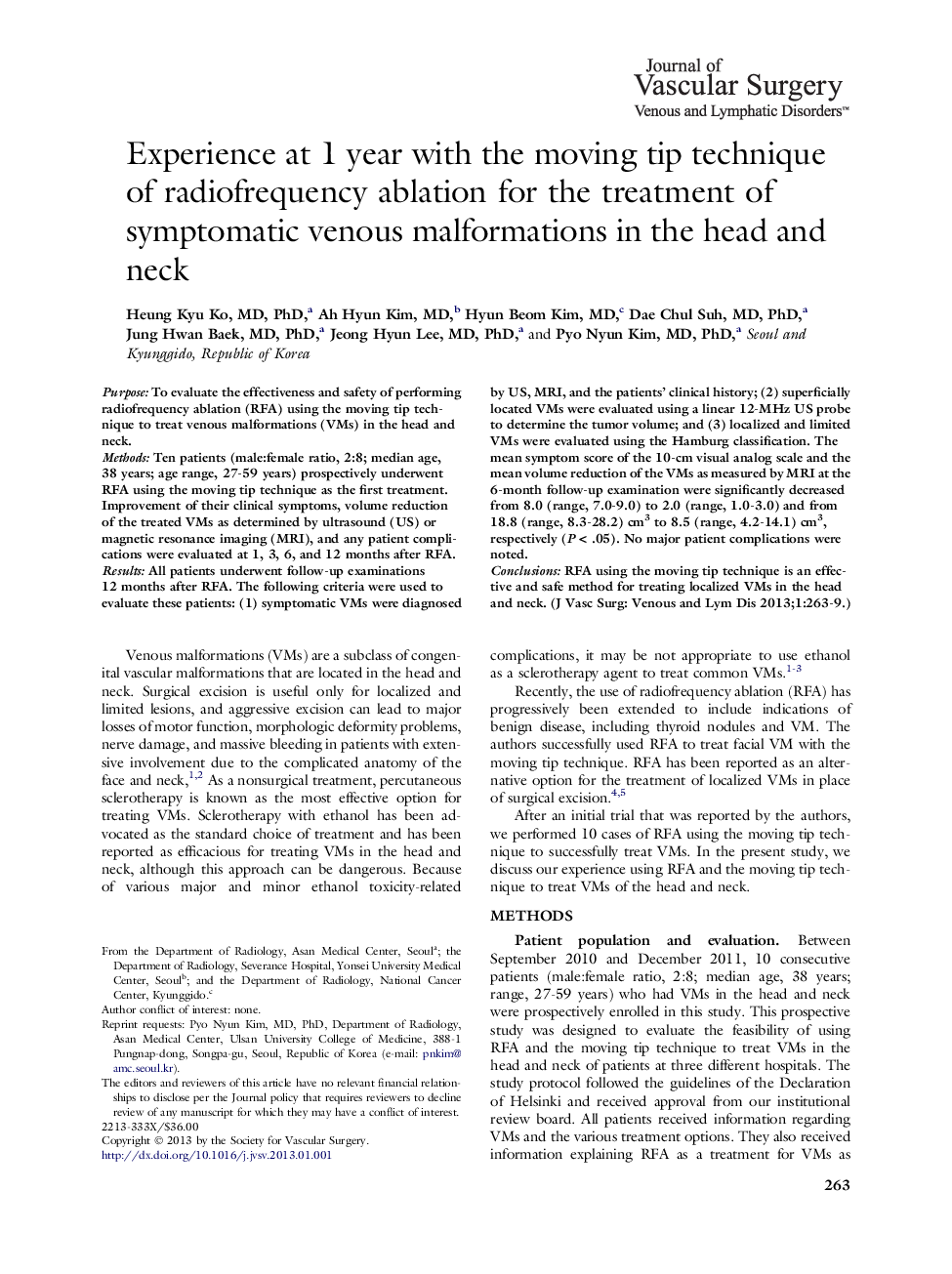| کد مقاله | کد نشریه | سال انتشار | مقاله انگلیسی | نسخه تمام متن |
|---|---|---|---|---|
| 2998154 | 1180226 | 2013 | 7 صفحه PDF | دانلود رایگان |

PurposeTo evaluate the effectiveness and safety of performing radiofrequency ablation (RFA) using the moving tip technique to treat venous malformations (VMs) in the head and neck.MethodsTen patients (male:female ratio, 2:8; median age, 38 years; age range, 27-59 years) prospectively underwent RFA using the moving tip technique as the first treatment. Improvement of their clinical symptoms, volume reduction of the treated VMs as determined by ultrasound (US) or magnetic resonance imaging (MRI), and any patient complications were evaluated at 1, 3, 6, and 12 months after RFA.ResultsAll patients underwent follow-up examinations 12 months after RFA. The following criteria were used to evaluate these patients: (1) symptomatic VMs were diagnosed by US, MRI, and the patients’ clinical history; (2) superficially located VMs were evaluated using a linear 12-MHz US probe to determine the tumor volume; and (3) localized and limited VMs were evaluated using the Hamburg classification. The mean symptom score of the 10-cm visual analog scale and the mean volume reduction of the VMs as measured by MRI at the 6-month follow-up examination were significantly decreased from 8.0 (range, 7.0-9.0) to 2.0 (range, 1.0-3.0) and from 18.8 (range, 8.3-28.2) cm3 to 8.5 (range, 4.2-14.1) cm3, respectively (P < .05). No major patient complications were noted.ConclusionsRFA using the moving tip technique is an effective and safe method for treating localized VMs in the head and neck.
Journal: Journal of Vascular Surgery: Venous and Lymphatic Disorders - Volume 1, Issue 3, July 2013, Pages 263–269